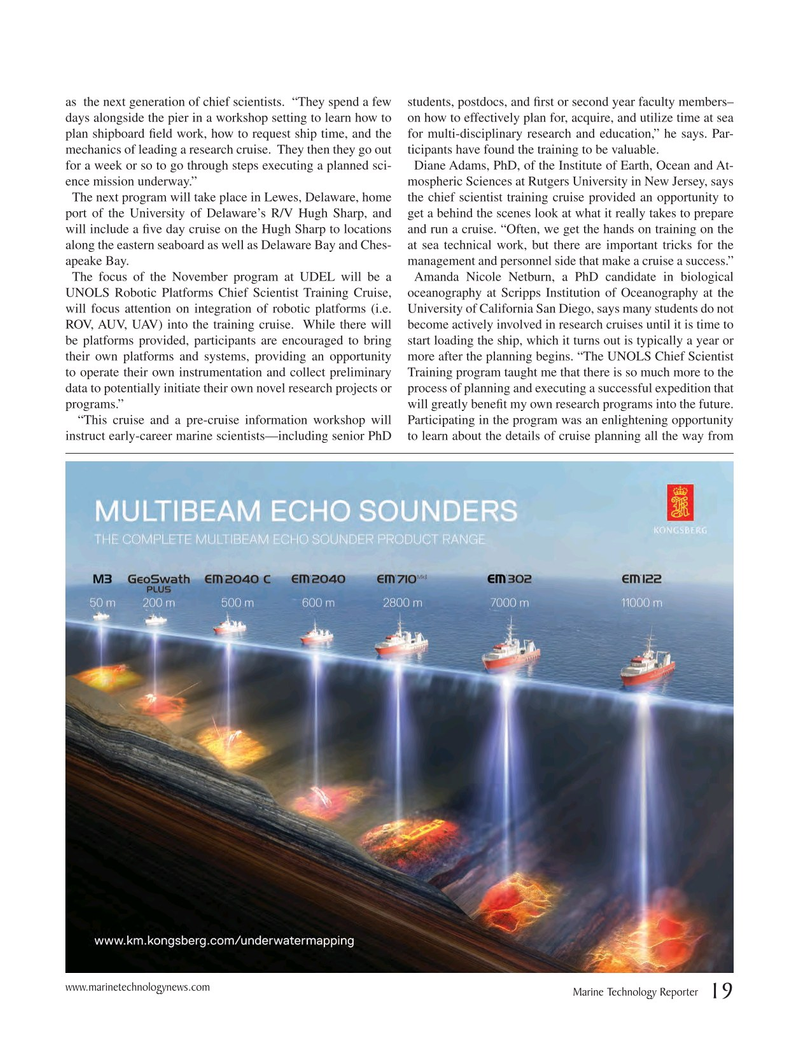
Page 19: of Marine Technology Magazine (October 2015)
AUV Operations
Read this page in Pdf, Flash or Html5 edition of October 2015 Marine Technology Magazine
as the next generation of chief scientists. “They spend a few students, postdocs, and ? rst or second year faculty members– days alongside the pier in a workshop setting to learn how to on how to effectively plan for, acquire, and utilize time at sea plan shipboard ? eld work, how to request ship time, and the for multi-disciplinary research and education,” he says. Par- mechanics of leading a research cruise. They then they go out ticipants have found the training to be valuable.
for a week or so to go through steps executing a planned sci- Diane Adams, PhD, of the Institute of Earth, Ocean and At- ence mission underway.” mospheric Sciences at Rutgers University in New Jersey, says
The next program will take place in Lewes, Delaware, home the chief scientist training cruise provided an opportunity to port of the University of Delaware’s R/V Hugh Sharp, and get a behind the scenes look at what it really takes to prepare will include a ? ve day cruise on the Hugh Sharp to locations and run a cruise. “Often, we get the hands on training on the along the eastern seaboard as well as Delaware Bay and Ches- at sea technical work, but there are important tricks for the apeake Bay. management and personnel side that make a cruise a success.”
The focus of the November program at UDEL will be a Amanda Nicole Netburn, a PhD candidate in biological
UNOLS Robotic Platforms Chief Scientist Training Cruise, oceanography at Scripps Institution of Oceanography at the will focus attention on integration of robotic platforms (i.e. University of California San Diego, says many students do not
ROV, AUV, UAV) into the training cruise. While there will become actively involved in research cruises until it is time to be platforms provided, participants are encouraged to bring start loading the ship, which it turns out is typically a year or their own platforms and systems, providing an opportunity more after the planning begins. “The UNOLS Chief Scientist to operate their own instrumentation and collect preliminary Training program taught me that there is so much more to the data to potentially initiate their own novel research projects or process of planning and executing a successful expedition that programs.” will greatly bene? t my own research programs into the future. “This cruise and a pre-cruise information workshop will Participating in the program was an enlightening opportunity instruct early-career marine scientists—including senior PhD to learn about the details of cruise planning all the way from www.marinetechnologynews.com
Marine Technology Reporter 19
MTR #8 (18-33).indd 19 10/1/2015 9:36:05 AM

 18
18

 20
20
